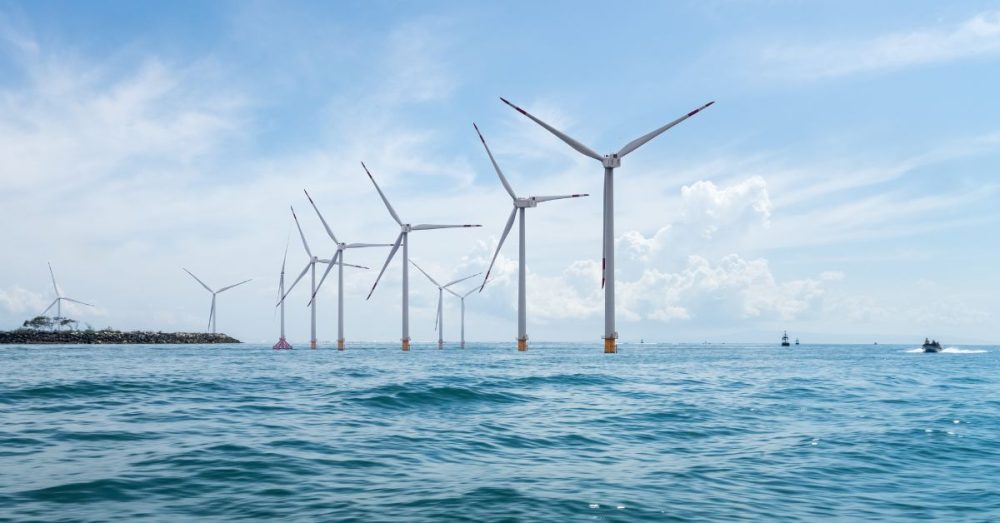There is a fight on the open seas in Texas’ Gulf, not between sailors and pirates but between two of America’s most ambitious offshore wind producers.
BlackRock-backed RWE Offshore US Gulf LLC recently asked the Bureau of Ocean Energy Management (BOEM) to pressure its competitor, Hecate Energy Gulf Wind LLC, to shell out big bucks to compensate Texas fishermen for potential damage to their fishing areas.
“RWE urges BOEM to consider including an option for Hecate Energy –- and any future unsolicited proposals in the Gulf of Mexico — to commit funding for a Fisheries Compensatory Mitigation Fund,” the company recently said during a public comment period on a developing offshore wind project in south Texas. RWE also encouraged BOEM to require Hecate to develop a communication plan with fisheries and tribal governments.
Texas’ fishing industry vigorously opposes RWE’s offshore wind projects, such as GOM WEA Option M near the TX-LA border.
Read RWS’s complete statement here.
With every project like Option M, fishermen’s organizations have raised concerns about chemical and material pollution from wind turbines. They fear chemicals like epichlorohydrin and PFAS could erode from turbine blades, contaminate the water, and kill fish stocks –– even people.
Fishermen are likewise concerned that construction could permanently damage the ecosystems of crustaceans and similarly valuable aquatic species.
The Southern Shrimping Alliance (SSA) raised these concerns and others when it commented on Hecate’s offshore wind project, The Dallas Express previously reported. SSA called for BOEM “to reject Hecate’s unsolicited request” and raised numerous concerns about an “unacceptably high degree of conflict with shrimp fishing operations ” and ecological concerns.
Under federal regulations, offshore wind development projects are encouraged to mitigate their effects on the environment. They can do so by contributing to funds that offset potential damage and compensate fishermen.
However, contributions are not mandatory, and developers get bidding credits from the Department of the Interior when they pursue auctions for offshore wind leases.
In RWE’s case, the Biden administration heralded its contributions to the LA-TX project and noted that “these bidding credits will result in over $860,000 in investments for workforce training and a domestic supply chain and another more than $430,000 for fisheries compensatory mitigation.”
While bidding credits can help get good media coverage and serve as a boost in the auction process, Hecate is not proceeding through the typical auction process.
On the same day the Biden administration canceled the second lease sale of another RWE offshore wind project near Texas, BOEM announced Hecate had approached the bureau “to acquire commercial wind energy lease(s) on the Outer Continental Shelf (OCS) in the Gulf of Mexico.”
This unsolicited action set off the public comment period, during which SSA and RWE made their comments, and the federal government put out feelers to see if there was a competitive interest in the areas Hecate wanted.
While 15 public comments were received about the Hecate project — 5 of which came in after DX wrote a story about the public comment period ending just hours before it finally closed — it has not yet been announced what BOEM’s determinations about competitive interest are.
If BOEM determines the project should go forward based (partly) on public comment and there is sufficient interest, then there could be a lease auction; if BOEM determines the project should go forward but there is not a competitive interest, then the bureau may pursue a noncompetitive lease sale.
It is unclear why RWE, through its comments, would subtly encourage Hecate to donate to fisheries or assume the cost of a communication plan, given that the leases both companies seek are not immediately near each other.
Nevertheless, there is some reason why one company would want another to assume such a massive increase in expenses. DX contacted RWE to find out but did not immediately hear back before publication.
Whether BOEM approves the option to contribute to a mitigation fund is immaterial in the minds of many fishermen.
Speaking generally about contributions to damage mitigation funds, rather than about RWE and Hecate specifically, Bonnie Brady, Executive Director of the Long Island Commercial Fishing Association, told DX that compensation is never true to catch values, and no one is giving an amount that would be equal to losing the area for its lease time of 20 years.
In her experience with Vineyard Wind One, a northeastern offshore wind project in prized squid, whiting, and fluke grounds, she said that damages far outweigh compensation.
“Even if a compensation plan is in the billions for all of the lease areas combined, NY alone, a smaller fishing state, from boat to restaurant table, it’s a $1 billion industry a year. Are they going to hand out a billion [dollars] a year to us for the next 20 years? Of course not; that would kill their profit,” she said, “Plus, it doesn’t take into account any of the processing or infrastructure businesses and jobs that would suddenly be out of business.”


